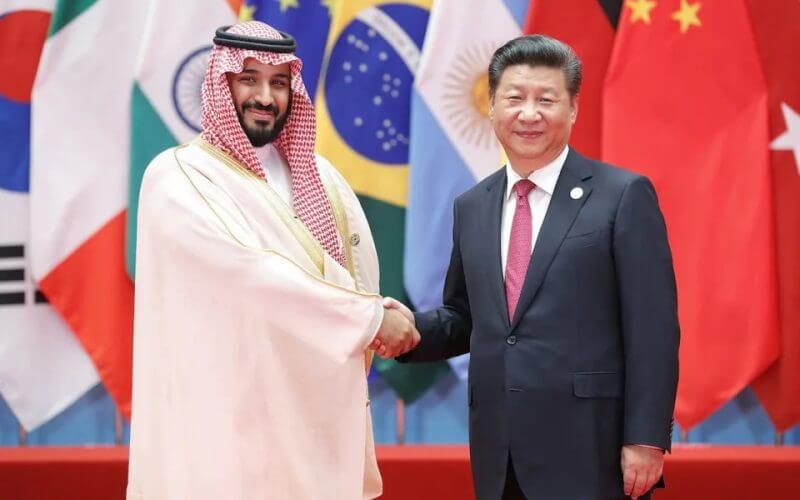1. Opens China to the Middle East
With China expanding its military capabilities and talk of a potential invasion of Taiwan, the recent meeting between President Xi Jinping and Crown Prince Mohammed Bin Salman opens up the CCP to spread its economic and military influence throughout the region in a challenge to the U.S. Currently, China has strong relations with the Islamic Republic of Iran and has helped provide economic and military resources to the regime while assisting the mullahs in avoiding international sanctions. Should China's presence grow in the Middle East, radical Islamic terrorist groups could rely further on Beijing to support them and stand against American assets.
2. Loss of a Critical Ally
With the Biden administration taking a harsh stance towards Saudi Arabia, the recent visit by President Xi indicates that the relationship between the U.S. and Saudi Arabia is further deteriorating. As the administration blames the Kingdom for its oil price policies and seeks a nuclear agreement with Tehran, the Crown Prince and his officials are forming new relations with Russia and China for economic and security purposes. Should the Kingdom dissolve relations with the U.S. and rally behind China, the result will damage American national security in the Persian Gulf and allow China to potentially have its military presence in one of the world's largest oil-producing countries. Additionally, the loss of Saudi Arabia to China could mean that American forces no longer have a critical military position to monitor the Islamic Republic of Iran and its terrorist proxies.
3. Loss of Energy for Allies
With Saudi Arabia being one of the largest oil-producing countries in the world, a potential alliance between Riyadh and Beijing could mean trouble for allies of the U.S., who rely heavily on oil to power their economies and support their military forces. Since the invasion of Ukraine began and Vladimir Putin cut oil to Western nations over economic sanctions, countries have had to rely on Saudi Arabia and other nations to make up their oil reserves. Should Saudi Arabia turn away from the U.S. and the West and look towards Beijing, China could convince the Saudi government not to supply hostile nations. Additionally, the loss of Saudi Arabia would mean that countries would rely on regimes like the Islamic Republic of Iran for oil or Russia, allowing anti-American regimes to gain control over America and its allies.
4. Strengthen China's Economy
Should China and Saudi Arabia agree to a bevy of economic policies regarding trade and oil, this would allow the Chinese communist government access to new energy reserves, strengthening its economy and military power. With China's economy already on the rise, an alliance between Beijing and Riyadh would allow China to grow its presence in the international markets. Additionally, new economic partnerships between Saudi Arabia and China could help increase Beijing's military capabilities, allowing the communist government to purchase and upgrade its armed forces for a potential invasion of Taiwan. As Western countries grapple with inflation concerning energy prices, an economic alliance between China and Saudi Arabia would allow the Chinese economy to have more energy for consumption and production than the West with little inflation.
5. Danger to America's Global Presence
With the botched withdrawal from Afghanistan, the war in Ukraine, energy inflation, and potential negotiations with Tehran over a nuclear agreement, the recent meeting between China and Saudi Arabia's top officials is another indicator of declining American presence globally. With Russia, China, and Iran all working together to maintain their control over their citizens, the inability of America to push back against these nations has many questioning whether the U.S. can provide economic and military security to the world. Should Riyadh ally with Beijing and cut off ties with the U.S., many more countries in the Middle East and other parts of the world could follow, crippling decades of American strength and influence. The recent visit to Saudi Arabia and the warming of relations between the two nations could allow China to become a significant economic and military superpower capable of challenging America and its allies.










